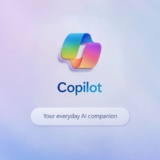Microsoft Bing Issue Disrupts Copilot, DuckDuckGo, and ChatGPT Search Features
A recent technical issue with Microsoft Bing’s API has led to significant disruptions across multiple platforms, including Copilot, DuckDuckGo, and ChatGPT, affecting their search functionalities. This incident underscores the interconnected nature of digital services and the wide-reaching impact a single point of failure can have.
The problem, which emerged earlier this week, appears to be directly linked to Bing’s API. Many services that rely on Bing for their search capabilities experienced outages or degraded performance as a result. Users of Copilot, an AI-powered coding assistant, DuckDuckGo, a privacy-focused search engine, and ChatGPT, an AI conversational agent, reported difficulties in performing search operations, reflecting the widespread reliance on Bing’s infrastructure.
- Copilot: Developed by GitHub and powered by OpenAI, Copilot assists developers by suggesting code snippets and completing code based on context. The disruption in Bing’s API impacted its ability to fetch relevant code examples and documentation from the web, hindering developers’ workflows.
- DuckDuckGo: Known for its emphasis on privacy, DuckDuckGo relies on Bing to supplement its search results. The API issue led to slower response times and, in some cases, incomplete search results, frustrating users who prioritize privacy but still need reliable search functionality.
- ChatGPT: The ChatGPT model, which also integrates Bing for providing up-to-date information and search capabilities, faced challenges in fetching accurate and timely information, affecting user experience and the accuracy of responses.
Microsoft acknowledged the issue and has been working on a resolution to restore full functionality to the affected services. The company emphasized its commitment to maintaining high availability and performance of its APIs, recognizing the critical role they play in a wide range of applications.
This incident highlights the dependencies that many services have on major technology providers like Microsoft. While APIs provide powerful ways to extend functionality and access comprehensive datasets, they also create points of vulnerability. A disruption in one service can cascade across numerous platforms, amplifying the impact.
To mitigate such risks, services that rely on third-party APIs might consider:
- Redundancy: Implementing alternative data sources or fallback mechanisms to maintain functionality during primary service outages.
- Monitoring and Alerts: Enhancing monitoring systems to detect and respond to API issues promptly.
- Communication: Keeping users informed about service status and ongoing issues to manage expectations and maintain trust.





